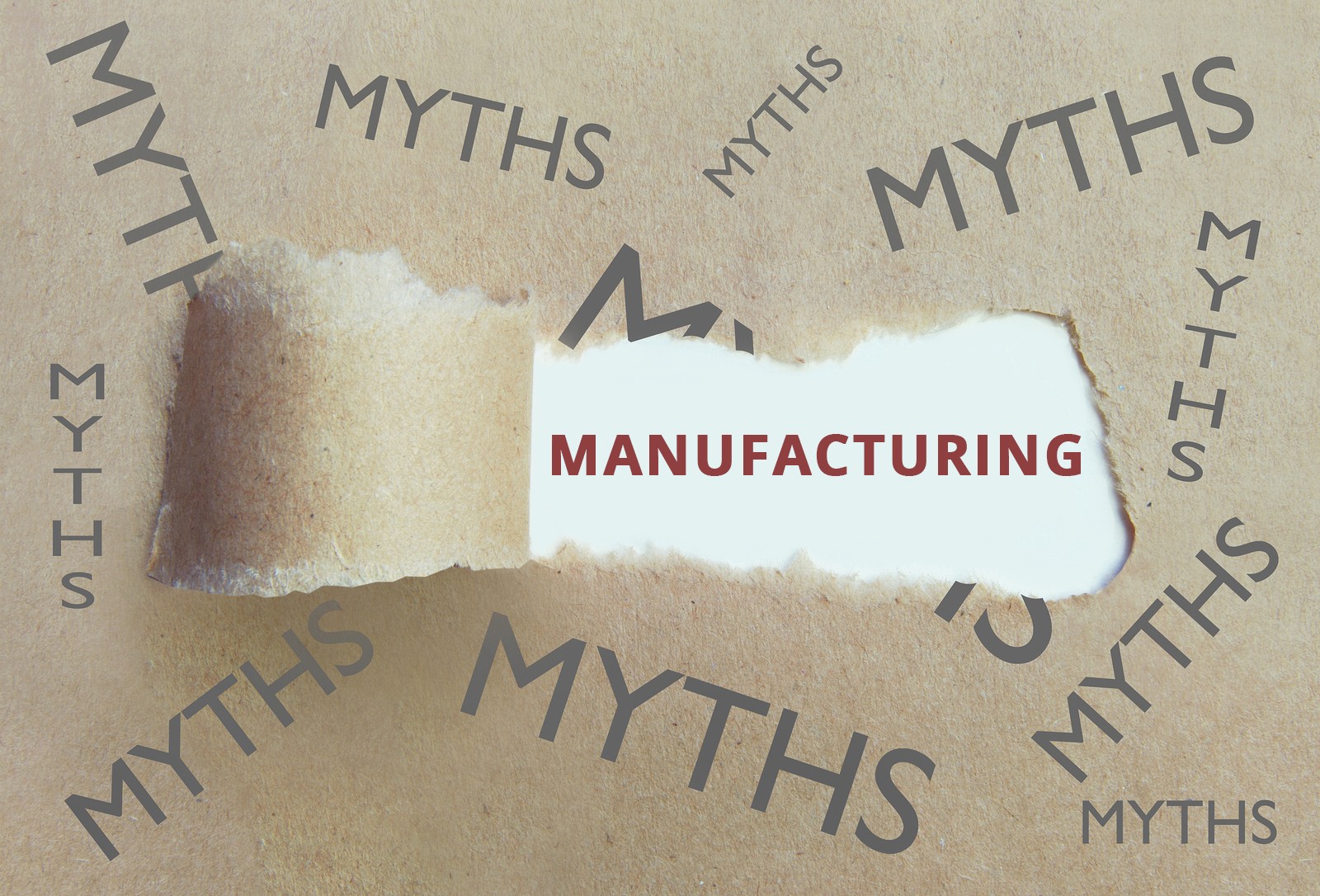7 Mind-Blowing Myths About Manufacturing

The manufacturing industry has long been the backbone of economies worldwide, but it’s also shrouded in misconceptions that often distort public perception.
These myths can discourage young talent from entering the field, limit innovation, and undermine the respect this vital sector deserves.
For manufacturing managers, operations professionals, and industrial engineers, understanding the truth behind these myths isn’t just enlightening—it’s essential for driving progress and ensuring the industry’s future success.
This post breaks down seven of the most pervasive myths about the manufacturing industry and uncovers the often-overlooked realities that every industrial professional should know.
Myth #1: Manufacturing is Outdated and in Decline
The Truth:
Far from being an outdated industry, manufacturing is a hub of constant evolution and growth. With advanced robotics, automation, and technologies like 3D printing and AI, manufacturing is at the forefront of innovation.
According to the National Association of Manufacturers, the industry contributes $2.83 trillion annually to the U.S. economy, accounting for 11% of GDP. What’s more, these advances have led to increased productivity levels, despite fewer factories than in previous decades.
Global regions like Asia and the U.S. are reshoring operations due to supply chain vulnerabilities exposed during recent challenges like the COVID-19 pandemic.
Between reshoring projects and growing niche markets, manufacturing is not declining but diversifying and thriving.
For industrial engineers, this myth highlights an opportunity to continue adopting emerging strategies like additive manufacturing and IoT to meet shifting market demands.
Myth #2: Automation is Eliminating Jobs in Manufacturing
The Truth:
One of the most persistent myths suggests that robots and automation are taking over human roles, leaving skilled professionals without opportunities. This oversimplified narrative ignores the reality that automation is creating new, often higher-skilled roles.
For example, Deloitte reports that automation is expected to create close to 133 million new jobs globally over the coming years.
Instead of a workforce replacement, automation enhances productivity by performing repetitive, high-risk tasks, allowing workers to focus on areas like programming, machinery operation, and process optimisation.
Industrial engineers specialised in lean manufacturing can attest that automation optimises workflows and enables job enrichment rather than job redundancy.
Myth #3: Manufacturing Is a “Dirty” and “Dangerous” Job
The Truth:
The days of dark, poorly ventilated factories are over. Modern manufacturing facilities are high-tech and meticulously clean, adhering to strict safety standards.
Lean manufacturing principles and 6S standards (Sort, Set in Order, Shine, Standardise, Sustain, and Safety) have revolutionised workplace environments, making them as safe and ergonomic as possible.
Smart manufacturing technologies like sensors predict system failures to prevent accidents, and robots now handle hazardous tasks. The occupational safety rates in manufacturing have improved significantly compared to traditional perceptions.
For operations professionals, promoting a safer and more sustainable culture also translates to attracting and retaining skilled employees.
Myth #4: Manufacturing Is Only a Career for Men
The Truth:
While manufacturing has historically been male-dominated, this is rapidly changing. Women now hold various positions in manufacturing, proving their value in roles ranging from operations management to robotics engineering.
Initiatives like Women in Manufacturing aim to close the gender gap and create inclusive environments. Beyond opportunity, studies show workplaces that foster diversity and inclusion achieve better innovation and performance outcomes.
For manufacturing managers, actively promoting gender diversity strengthens organisations and builds pathways for skilled talent.
Myth #5: Manufacturing Is Low-Tech and Lacks Innovation
The Truth:
This myth couldn’t be further from reality. Manufacturing industries drive global technological advancements, with innovations like:
- AI-driven production insights: Platforms analyse manufacturing data in real-time to predict outcomes.
- IoT-enabled machines: Connected devices ensure streamlined operations and predictive maintenance.
- 3D printing and rapid prototyping: Reshaping product development processes.
For those in industrial engineering, this myth should be viewed as a challenge to demonstrate how cutting-edge tools and methodologies (like digital twins and smart factories) are revolutionising the field.
Myth #6: All Manufacturing Jobs Are Outsourced Overseas
The Truth:
The idea that manufacturing jobs have disappeared offshore is both misleading and outdated. While there are still companies that outsource, reshoring is becoming the prevailing trend.
Uncertainty around overseas labour costs, tariffs, and supply chain reliability has driven many businesses back to domestic production.
Additionally, “Made in Nigeria” branding resonates strongly with consumers, giving manufacturers added incentive to operate locally. For manufacturing professionals, this highlights the importance of building resilient and innovative supply chains.
Myth #7: Manufacturing Jobs Are Low-Paying and Dead-End
The Truth:
Manufacturing careers today offer competitive salaries and benefits that frequently exceed those of other industries. According to the U.S. Bureau of Labor Statistics, the average manufacturing worker earns $92,832 annually, including pay and benefits.
More importantly, modern manufacturing supports lifelong learning and growth, offering clear career paths in areas such as operations management, data-driven engineering, and corporate leadership.
Employers are increasingly investing in upskilling their workforce with certifications for cutting-edge processes and tools.
Aspiring engineers or managers entering the industry can anticipate a career path filled with opportunities to enhance skills and climb the professional ladder.
Final Thoughts: Debunking Misconceptions to Drive Industry Growth
For manufacturing managers, operations professionals, and industrial engineers, dispelling these myths is crucial not just for education but for action.
The modern manufacturing industry is progressive, tech-driven, and bursting with opportunities for innovation and leadership.
The next time someone repeats one of these myths, make it your mission to set the record straight. With accurate information and a focus on best practices, you’ll help reshape public perception and secure skilled talent for the future.
Does your organisation face challenges adapting to modern manufacturing trends? We offer consulting services tailored to industrial professionals seeking cutting-edge solutions.